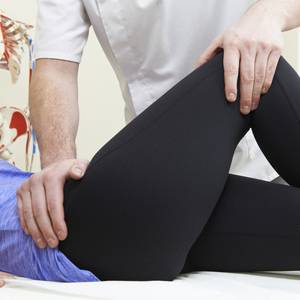nalco group
bone, muscle & joint pain physio
BOOK NOW / WHATSAPP ABOUT YOUR PAIN OR INJURY
- ORCHARD 400 Orchard Road #12-12 Singapore 238875
- TAMPINES 9 Tampines Grande #01-20 Singapore 528735
- SERANGOON 265 Serangoon Central Drive #04-269 Singapore 550265
Home > Blog > Physiotherapy > Conditions We Treat > Hip Pain
Hip pain physiotherapy in singapore

Hip pain can be caused by many factors such as
- hip fractures
- hip joint injuries
- muscle strains or contusion
- nerve irritation
- arthritis including osteoarthritis
Any of the above conditions will cause pain and discomfort, but we're more concerned on ruling out and managing any underlying undiagnosed issues such as infections or cancerous cell growths that may cause pain - if unsure, please immediately see a doctor (or go to the emergency department).
You will need your hip to be assessed and even scanned to check and rule out for possible injuries that need immediate medical attention and hip physiotherapy.
If you want an orthopedic doctor recommendation (whom we trust and have worked with for years) for your bone, muscle or joint pains and injuries, go here.
In some rare cases, you may need a corrective surgery if it's severe (such as hip fractures), but most of the time, if it's a non-fracture musculoskeletal condition such as
- hip joint injuries
- muscle strains or contusion
- nerve irritation
- arthritis including osteoarthritis
It is highly likely that you will need active physiotherapy to build and restore
- hip joint range of motion
- hip strength
- restore normal walking patterns
on top of hip pain relief and management too, of course.
hip pain physiotherapy
Physiotherapy for hip pain management really depends on:
- what structures are damaged/injured - is it the hip joint, or hip muscles, or ligaments or cartilages in the hip joint
- if the injury or damages are mild, moderate or severe
Hip Fracture Management Example
An example is if the patient has hip fracture that is for conservative (non-surgical) hip injury management and intervention:
- if the injured hip is stable, then you can (and need to) start with hip physiotherapy. That includes gentle and safe active mobilization including getting up and about, moving within homes, etc. If it's purely bed-bound, then moreso mobilization of non-injured joints and chest and lung physiotherapy.
- if the injured hip is found to have an unstable fracture, the orthopedic doctor usually recommends hip replacement (the reason being, hip replacement surgeries allow patients to get back to moving around quickly, and going back home and normal life quickly too...conversely, patients who either refuse or cant do hip surgeries tend to be placed on prolonged bed rest, typically 6-12 weeks, which will weaken them so much that they either get recurrent chest infections plus decondition such that they'd fall once they get discharged home again)
Hip Muscle Joint Strain
If it's hip muscles strain or contusion, it'd depend on the severity of the contusion.
There are three grades of muscle strains,
- Grade 1: less than 5% muscle fiber tear
- Grade 2: significantly more than Grade 1 but less than 75%
- Grade 3: 75% to full rupture
If it's a Grade 1 hip muscle strain, hip pain physiotherapy will be focused on firstly on pain relief and swelling management, followed by gentle range of motion stretching and movements of the hip joints.
As the hip joint regains range of motion and if it's stable, then we will progress onto advanced stages:
- Hip joint strengthening
- Balance training
- Activity tolerance and stamina building
If it's full rupture (the Grade 3 kind), it depends if it's stable or not, need surgery or not. The orthopedic would assess and advise if hip surgery is necessary or not. Hip physiotherapy will be a necessity, hip surgery or not.
Hip Nerve Irritation
Nerve irritation that causes hip pain can be due to medical conditions such as slipped / herniated spinal disc causing sciatica and sciatic-nerve related pains. If this is what that is causing the pain in the hip, then we recommend for patients to be seen by our senior hip physiotherapists who are specialists in back and neck conditions.
Patients may also be prescribed computerized spinal decompression traction to relieve the pressure at the slipped disc and that will provide pain and spasm relief. The senior spine physios may also mobilize the joint to ensure that blood flow and circulation is good at the hip joint and nerves.
Patient may also benefit from core strengthening and clinical Pilates to protect the neck and back.
Hip Osteoarthritis (Arthritis)
Osteoarthritis of the hip joint causing pain will be managed by combination of
- heat therapy (we recommend and use Bremed electrical heat pack)
- gentle range of motion active and passive physio
- mobilization of soft tissues
- strengthening of hip, back, core and thigh muscles to support
